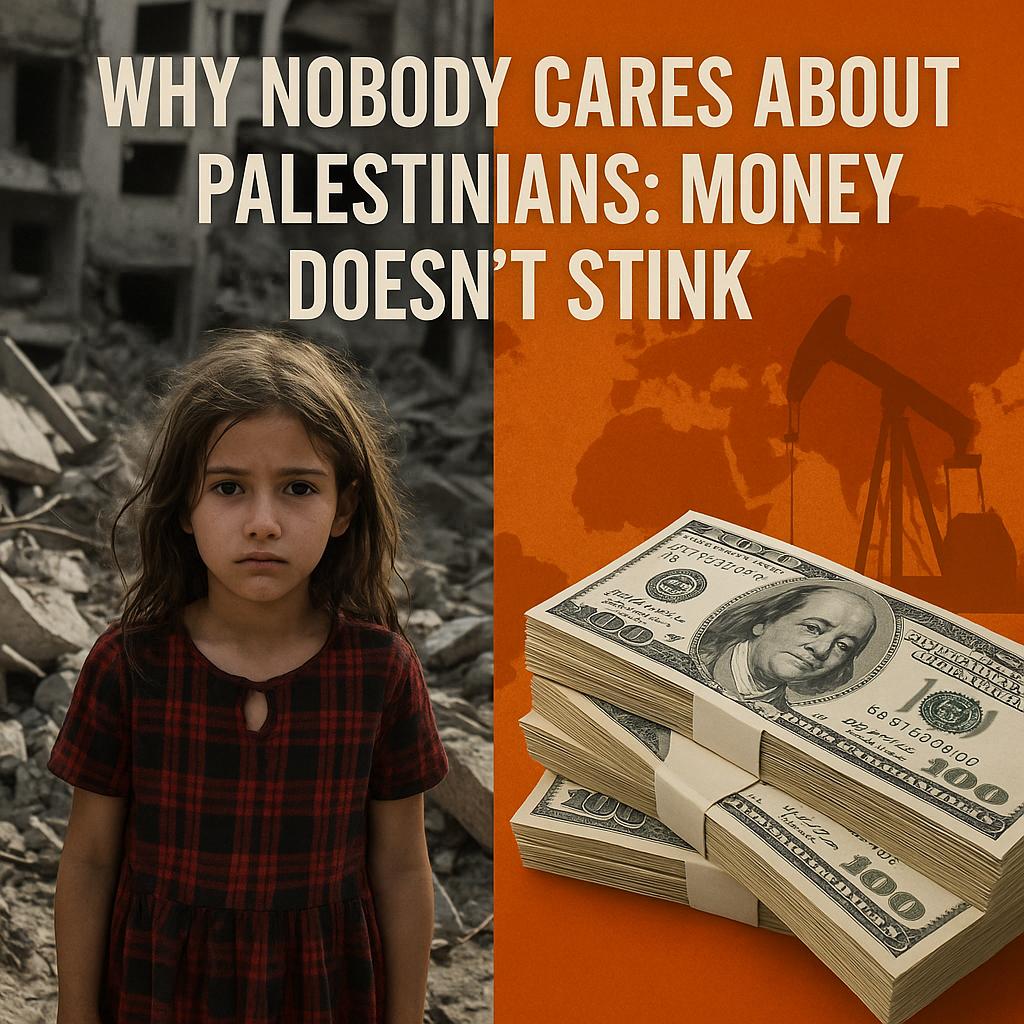The paradox is clear. Palestinians face mass suffering, yet the world looks away. Their homes are destroyed, their children killed, and their lives reduced to numbers on a screen. Ukraine dominates front pages, but Gaza appears only in scattered reports, often framed as a security problem. This silence is not an accident. It comes from money, clientelism, and the cold indifference of ordinary voters.
The rich Islamic world and Western money
The Gulf states sit on immense oil wealth. Saudi Arabia, the UAE, Qatar, and Kuwait hold sovereign funds worth trillions. These funds are not idle. They are invested in Wall Street banks, European stock markets, luxury real estate, and Western tech companies. Their elites live on the returns of integration. They prioritize luxury, power, and regime survival over Palestinian liberation.
For decades, the Palestinian cause was used as a rhetorical tool. Leaders spoke loudly at conferences, but quietly signed deals behind closed doors. The Abraham Accords made this even more visible. Normalization with Israel locked in restraint. Arab capitals will not risk sanctions, frozen assets, or cancelled arms contracts.
Western politicians and Jewish clientelism
In the West, politics runs on networks. Pro-Israel lobbying is not just a myth. It is lobbying money, donations, campaign bundlers, think tanks, and media support. Politicians know this. They know their careers depend on staying inside these networks. That is why Israel receives automatic support, regardless of its human rights record.
There are also anti-Israel Jewish voices. Jewish Voice for Peace, B’Tselem, and similar groups try to break the narrative. Yet they are weaker, fragmented, and pushed to the margins. Christian Zionism makes the imbalance even greater. It adds a separate vote bloc and donor stream, especially in the United States, where theology merges with geopolitics. Clientelism, not morality, sets the agenda.
What would have happened in the past
The contrast with history is striking. Such massacres could have provoked open war in earlier decades. In 1948, Arab states intervened after the Nakba. And in 1967, they launched a war over the territories central to the Palestinian question. In 1973, the Yom Kippur War brought coordinated attacks, and the Arab oil embargo shook the world economy. In 1982, Israel’s invasion of Lebanon drew in states and armies.
Today, the civilian toll is higher, but no state dares attack Israel. The reasons are structural. The United States provides a security umbrella and missile defense cooperation. Gulf money is tied into Western banks. Arab capitals sign normalization deals, not war declarations. Bases, arms, and financial interdependence make direct confrontation almost unthinkable.
The role of ordinary voters
Ordinary citizens add another layer of silence. Distant suffering feels abstract. Media frames Palestinians as terrorists or collateral damage. Empathy shrinks when numbers grow into thousands. Psychologists call it compassion fade or psychic numbing. People cry for one child but turn away from a million.
Voters see no direct incentive to care. Their jobs, bills, and elections dominate daily life. Elites discourage sympathy, and media coverage rarely pierces through. The genocide becomes normalized background noise. It continues because no one demands otherwise.
Why Palestinians are alone
Palestinians find themselves isolated. The Islamic world is tied to Western capital and cannot risk sanctions. The Western world is trapped in clientelist politics that reward loyalty to Israel. The Global South voices symbolic support but has little leverage. Military alliances, missile defense, and foreign bases raise the costs of challenging Israel.
Everywhere Palestinians turn, the answer is the same. Money, power, and networks matter more than human life.
Conclusion
This indifference is not a moral accident. It is a structural outcome of global politics. The genocide continues because money flows bind Islamic elites, clientelism cages Western leaders, and ordinary voters do not care. Without breaking these chains, nothing will change. Palestinians will remain alone, and their suffering will remain background noise for a world that has chosen to look away.

Leave a Reply